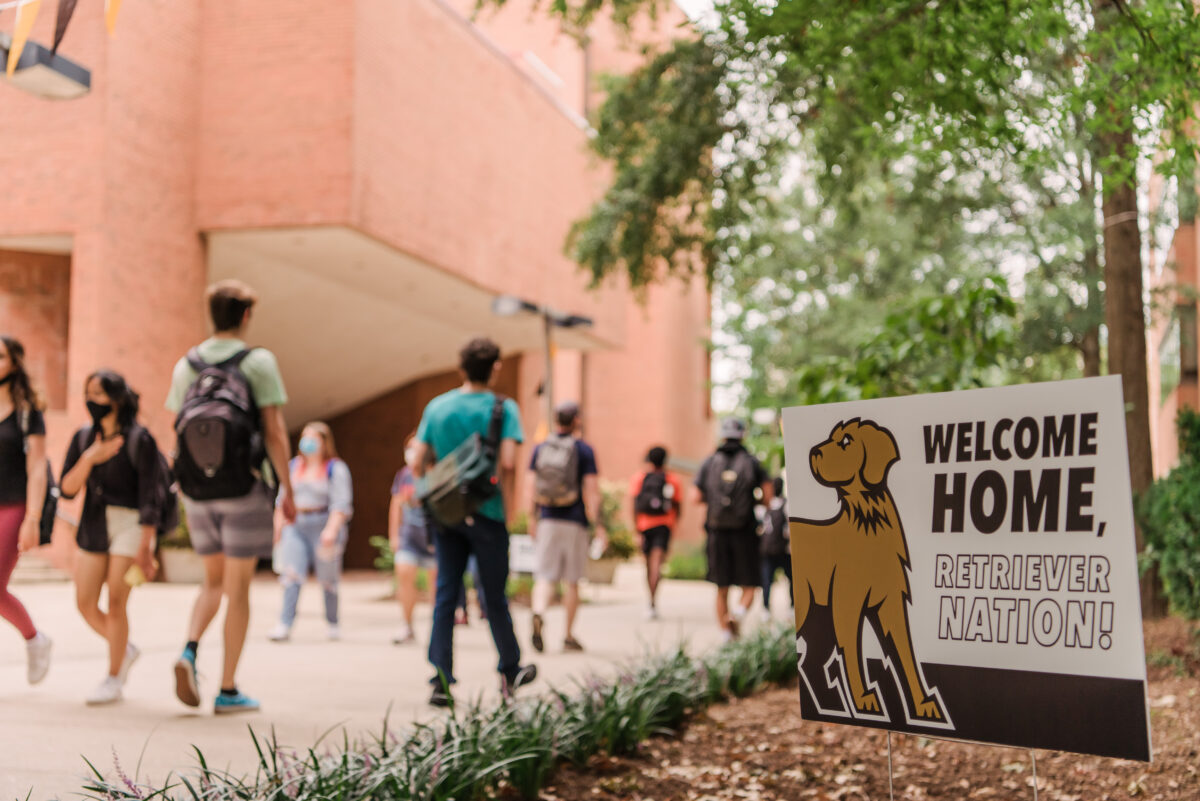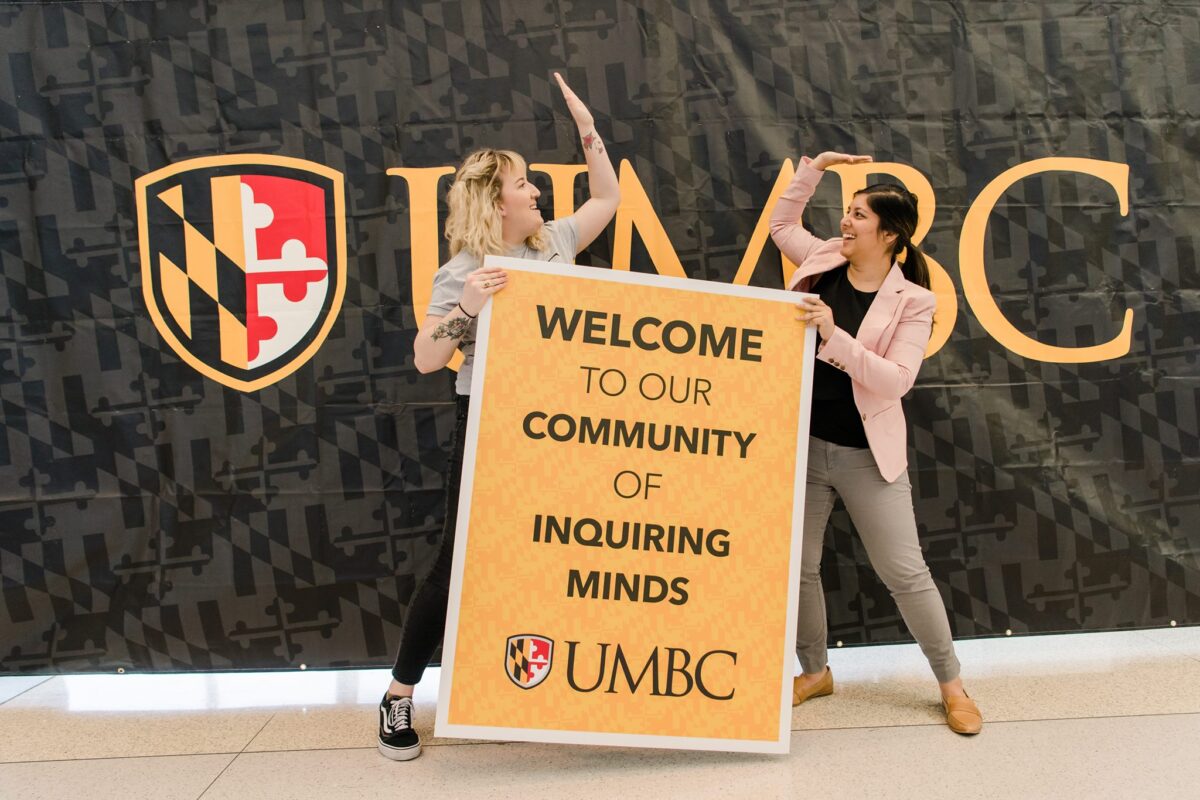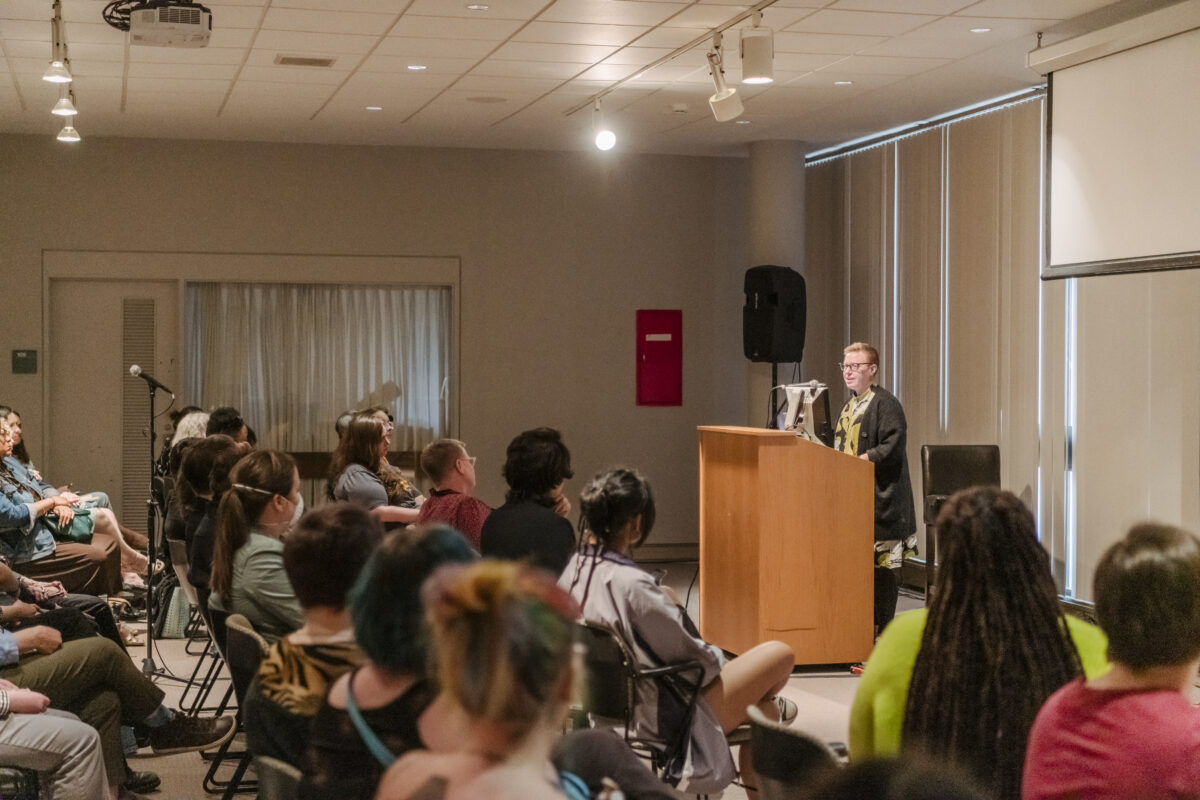Leading the Way for Student-Athletes
UMBC has built a tradition of successful student-athletes who are not only great competitors at their sports, but also provide leadership on and off the field. High jumper Ed Warner confirmed his place in this elite group with his participation in the NCAAs Leadership Conference, held last summer in Orlando, Florida.
Accomplishments on and off the field earned Warner one of only 300 spots at the conference. During the 2002-03 indoor track seasons, he won the high jump at the Terrapin/PVA Indoor Track Meet with a leap of 2.09 meters, was the runner-up in the high jump at the Penn State Indoor Invitational and the NEC Indoor Championships. He has also been team captain for the last two years.
Warner has also been actively involved in student organizations throughout his years at UMBC. As a freshman, Warner served on UMBCs judicial board and has also been a resident assistant. A highlight of his campus activity is his work with the Student Government Association, where he helped create the Team Point System, designed to promote school spirit by increasing attendance at UMBC athletic events. Student organizations were awarded points when their members attended these events, and organizations with the highest number of points at the end of the year received prizes.
Warners strong leadership skills proved to be an asset at the NCAA Leadership Conference. While at the Conference, Warner formed a team with about 15 other student-athletes. This team was led by two facilitators who taught the student-athletes how to work as a unit and become better individual leaders in the process.
Leading by example, the facilitators left a deep impression on Warner. The facilitators taught me so much that I can still remember their names, Warner said. They taught me how to be a great leader and improve my existing abilities.
Conference participants were presented with a series of challenges that gave them the opportunity to practice the leadership and team-building skills they were learning. One specific challenge that Warner remembered well was a night when all 300 student-athletes thought they were getting ready to go out for a nice dinner. The students gathered on buses to go, but, when they approached a barn, Warner and his teammates grew suspicious. When they stepped off the buses, students were told that, instead of receiving dinner, they would be preparing their own dinners with their teammates.
When my teammates and I first heard our mission, we began to argue about what we could make for dinner that would accommodate everyones individual tastes and dietary restrictions, Warner recalled. We had to stop and remember what we had learned earlier in the week about teamwork and apply it to this challenge. Once we started working together, as a team it became a better environment and a good dinner.
Warner must have made quite an impression at the Leadership Conference because, in early November, he was chosen to go to the headquarters of USA TODAY to meet with NCAA corporate sponsors and the president and vice president of the NCAA to share his experiences at the leadership conference. He was one of only three student-athletes chosen to address the group. Warner received a firsthand look at the NCAAs plans for the 2004 athletic seasons, including its upcoming promotional campaigns.
My experiences at both the Leadership Conference in Florida and the meeting at USA TODAY were amazing, Warner said. Although the Leadership Conference is over, Ive just begun to use all that I learned.
Warner, a political science major, doesnt plan to leave his leadership skills behind after leaving UMBC. After graduation, he intends to go to law school and pursue a career in immigration and naturalization law.



